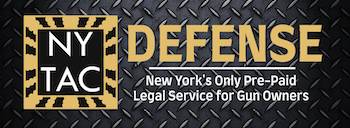Representation.
Loitering
Loitering is a criminal charge in New York and carries with it the potential for the imposition of jail time which may impact a person’s employment and future opportunities. New York loitering crimes are codified from New York Penal Law 240.35 though 240.37. Enhanced punishments exist for loitering for the purpose of doing, selling, or possessing drugs and loitering for the purpose of engaging in a prostitution offense. New York’s loitering laws are applied to particular circumstances that New York’s legislature finds to be offensive to public order rather than as a very broad vague sort of catch all, however, some of the loitering laws carry very broad language and criminalize a wide variety of conduct.
If you or someone you love has been accused of loitering call our New York criminal defense lawyers today. Our aggressive New York loitering attorneys will fight your loitering charges by picking apart the prosecutor’s case. Call us today for a free consultation.
The following is a list of the circumstances criminalized by New York’s loitering law:
- Getting together to play card games, shoot dice, or play other gambling games.
- Gathering while being masked to disguise one’s identity.
- Milling about and remaining near a school, college, child’s campgrounds, summer camp, or school bus without having a good reason to be there.
- Milling about and remaining in a transit facility like a train, bus, or subway station to try and transact business, sell things, or put on performances (like break-dancing on a subway platform for tips).
- Each of the above instances of loitering are punishable as a violation not a crime.
Loitering in the first degree punishes milling about and remaining in a particular place in order to facilitate becoming intoxicated with a controlled substance, or to possess a controlled substance. Loitering in the first degree is a class B misdemeanor, punishable by up to 90 days in jail. This statute is commonly used to punish those who are using drugs in the open, in concert with other statutes that punish possession of drugs and drug paraphernalia. There is a split in court authority on whether this statute applies to people waiting in their car for the purposes of obtaining or doing drugs.
Loitering for the purposes of engaging in a prostitution offense prohibits prostitutes from walking the street looking for johns, johns from trying to get the attention of prostitutes from their cars, and it also prohibits pimps from selling the services of prostitutes to passers-by in the street. Despite the statute being relatively vague, it was upheld in court in the face of constitutional challenges to its definiteness. Loitering for the purposes of engaging in a prostitution can either be punished as a class A misdemeanor or a class B misdemeanor depending on the subdivision of the law charged.
It is important to note that when those who are 16 or 17 and are arrested for loitering for the purposes of engaging in a prostitution offense are provided with alternatives to criminal punishment. Under Criminal Procedure Law 170.80, there are three ways of alternatively disposing of loitering for purposes of engaging in prostitution charges. First, the charges can be converted, conditioned on a guilty plea, and consent from the defendant, to a person in need of supervision proceeding under the Family Court Act, or order for specialized social services for the troubled youth. The second alternative method for resolving such charges is dismissal in furtherance of substantial justice when the defendant participates in social services to help correct their behavior and accomplishes their goals. The third method for disposing of loitering for the purposes of engaging in a prostitution offense when the defendant is 16 or 17 is to sentence the defendant as a youthful offender and a penalty of a violation, an ACD with a one year period in which the person must stay out of trouble, a fine of $250 or double the gain made committing the crime, an order for special social services, or a jail sentence of 15 days.
If you or someone you love has been accused of or charged with a loitering offense, call our New York criminal defense lawyers today. Our aggressive and detail-oriented New York criminal defense attorneys will fight your loitering charges by presenting the strongest possible legal arguments in your case. Call us today for a free consultation.

















